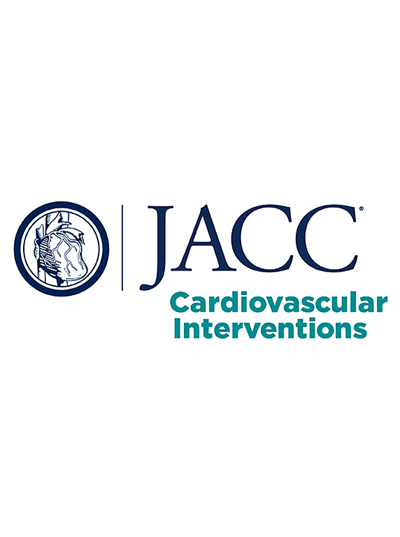Different Mechanical Circulatory Support Strategies for Infarct-Related Cardiogenic Shock
IF 11.7
1区 医学
Q1 CARDIAC & CARDIOVASCULAR SYSTEMS
引用次数: 0
Abstract
Background
Mechanical circulatory support (MCS) devices are frequently used in patients with acute myocardial infarction complicated by cardiogenic shock. In clinical practice, escalation of MCS device therapy is performed in a significant proportion of patients aiming to improve hemodynamic status.
Objectives
The aim of this study was to analyze outcomes of different MCS device strategies in the ECLS-SHOCK (Extracorporeal Life Support in Cardiogenic Shock) trial.
Methods
The present subanalysis from the ECLS-SHOCK trial analyzed outcomes of patients treated with upfront extracorporeal life support (ECLS) only, bailout MCS, and escalated MCS therapy. The primary outcome was 30-day all-cause mortality.
Results
Upfront ECLS only, bailout MCS, and escalated MCS therapy were used in 165 (78.9%), 54 (26.0%), and 27 (12.9%) patients, respectively. Thirty-day all-cause mortality was 44.8% (95% CI: 37.1%-52.8%), 61.1% (95% CI: 46.9%-74.1%), and 55.6% (95% CI: 35.3%-74.5%) in the upfront ECLS, bailout MCS, and escalated MCS group (P = 0.09). Need for renal replacement therapy was higher in the bailout MCS (35.2%; 95% CI: 22.7%-49.4%) than in upfront ECLS (7.3%; 95% CI: 3.8%-12.4%) and escalated MCS (14.8%; 95% CI: 4.2%-33.8%) (P < 0.001). Moderate or severe bleeding complications were similar in the upfront ECLS (25.5%; 95% CI: 19.0%-32.8%), bailout MCS (22.2%; 95% CI: 12.0%-35.6%), and escalated MCS (22.2%; 95% CI: 8.6%-42.3%) group (P = 0.86).
Conclusions
Bailout and escalated MCS therapy is associated with numerically higher 30-day mortality compared with upfront ECLS use only. Bailout MCS use is also associated with higher need for renal replacement therapy. (Extracorporeal Life Support in Cardiogenic Shock [ECLS-SHOCK]; NCT03637205)
求助全文
约1分钟内获得全文
求助全文
来源期刊

JACC. Cardiovascular interventions
CARDIAC & CARDIOVASCULAR SYSTEMS-
CiteScore
11.60
自引率
8.80%
发文量
756
审稿时长
4-8 weeks
期刊介绍:
JACC: Cardiovascular Interventions is a specialist journal launched by the Journal of the American College of Cardiology (JACC). It covers the entire field of interventional cardiovascular medicine, including cardiac, peripheral, and cerebrovascular interventions. The journal publishes studies that will impact the practice of interventional cardiovascular medicine, including clinical trials, experimental studies, and in-depth discussions by respected experts. To enhance visual understanding, the journal is published both in print and electronically, utilizing the latest technologies.
 求助内容:
求助内容: 应助结果提醒方式:
应助结果提醒方式:


